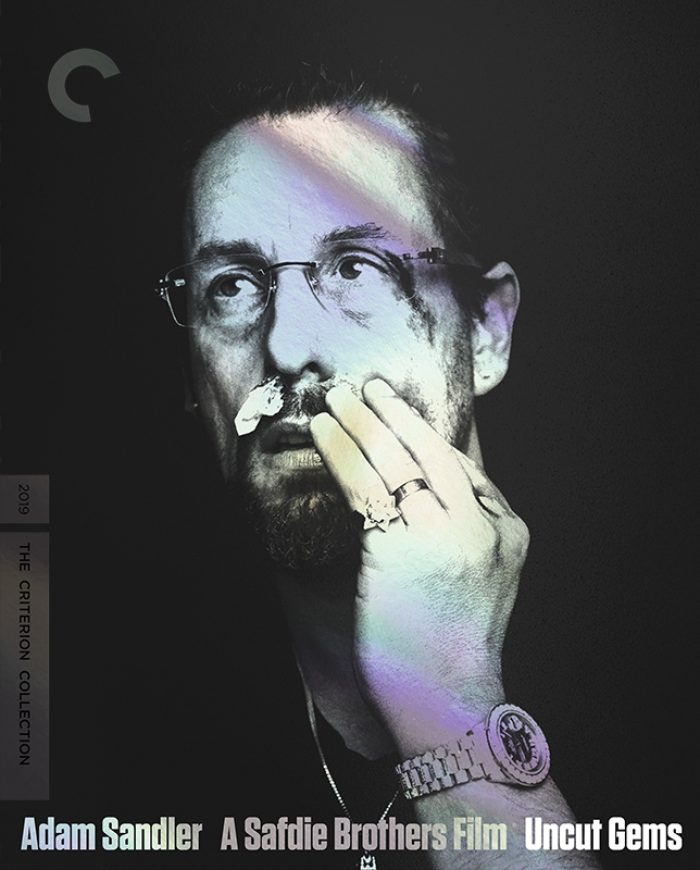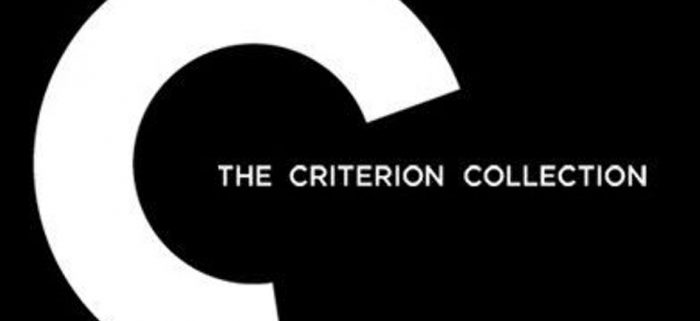'Uncut Gems' Coming To The Criterion Collection In October
This is how you win. Uncut Gems, the anxiety-inducing Adam Sandler flick from the Safdie Brothers, is headed to the Criterion Collection. And before you start shouting about how an Adam Sandler movie is now part of the esteemed Criterion Collection, I must remind you that's nothing new. Sandler's Paul Thomas Anderson movie Punch-Drunk Love is also part of the collection. This is, however, the first film from indie darlings A24 to join Criterion.
Howard Ratner may be gone, but his legend lives on thanks to the Criterion Collection. Criterion announced their titles for October, and among them is Uncut Gems, the stressful Safdie Brothers movie about a degenerate gambler who can't get out of his own way. The film will arrive on the Criterion Collection on October 26, 2021, with the following special features:
In Uncut Gems, Sandler is "Howard Ratner, a fast-talking New York jeweler in relentless pursuit of the next big score. When he comes into possession of a rare opal, it seems Howard's ship has finally come in—as long as he can stay one step ahead of a wife (Idina Menzel) who hates him, a mistress (Julia Fox) who can't quit him, and a frenzy of loan sharks and hit men closing in on him. Wrapping a vivid look at the old-school Jewish world of Manhattan's Diamond District within a kinetic thriller, Uncut Gems gives us one of the great characters in modern cinema: a tragic hero of competing compulsions on a shoot-the-moon quest to transcend his destiny."
I didn't love Uncut Gems as much as some folks (my review is here), primarily because it stressed me out so much that I wanted to claw all my skin off. But I appreciate the artistry that went into making the film, and I think Sandler's highly committed performance is a treat. A real gem, if you will.
Other October Criterion Releases
In addition to Uncut Gems, Criterion will also release the following titles.
HIGH SIERRA
Marking the moment when the gritty gangster sagas of the 1930s began giving way to the romantic fatalism of 1940s film noir, High Sierra also contains the star-making performance of Humphrey Bogart, who, alongside top-billed Ida Lupino, proved his leading-man mettle with his tough yet tender turn as Roy Earle. A career criminal plagued by his checkered past, Earle longs for a simpler life, but after getting sprung on parole, he falls in with a band of thieves for one last heist in the Sierra Nevada. Directed with characteristic punch by Raoul Walsh—who makes the most of the vertiginous mountain location—Roy and Lupino's Marie, a fellow outcast also desperate to escape her past, hurtle inexorably toward an unforgettable cliffside climax and a rendezvous with destiny.
THE INCREDIBLE SHRINKING MAN
Existentialism goes pop in this benchmark of atomic-age science fiction, a superlative adaptation of a novel by the legendary Richard Matheson that has awed and unnerved generations of viewers with the question, What is humanity's place amid the infinity of the universe? Six months after being exposed to a mysterious radiation cloud, suburban everyman Scott Carey (Grant Williams) finds himself becoming smaller . . . and smaller . . . and smaller—until he's left to fend for himself in a world in which ordinary cats, mousetraps, and spiders pose a mortal threat, all while grappling with a diminishing sense of himself. Directed by the prolific creature-feature impresario Jack Arnold with ingenious optical effects and a transcendent metaphysical ending, The Incredible Shrinking Man gazes with wonder and trepidation into the unknowable vastness of the cosmic void.
RATCATCHER
In her breathtaking and assured debut feature, Lynne Ramsay creates a haunting evocation of a troubled Glasgow childhood. Set during Scotland's national garbage strike of the mid-1970s, Ratcatcher explores the experiences of a poor adolescent boy as he struggles to reconcile his dreams and his guilt with the abjection that surrounds him. Utilizing beautiful, elusive imagery, candid performances, and unexpected humor, Ramsay deftly contrasts urban decay with a rich interior landscape of hope and perseverance, resulting in a work at once raw and deeply poetic.
DEVI
Master filmmaker Satyajit Ray explores the conflict between fanaticism and free will in Devi (The Goddess), issuing a subversively modern challenge to religious orthodoxy and patriarchal power structures. In the waning days of mid-nineteenth-century India's feudal system, after his son (Soumitra Chatterjee) leaves for Kolkata to complete his studies, a wealthy rural landowner (Chhabi Biswas) is seized by the notion that his beloved daughter-in-law (a hauntingly sad-eyed Sharmila Tagore) is the reincarnation of the goddess Kali—a delusion that proves devastating to the young woman and those around her. The opulently stylized compositions and the chiaroscuro lighting by cinematographer Subrata Mitra heighten the entrancing expressionistic intensity of this domestic tragedy, making for an experience that is both sublime and shattering.
You can find more info about all of these titles here.


